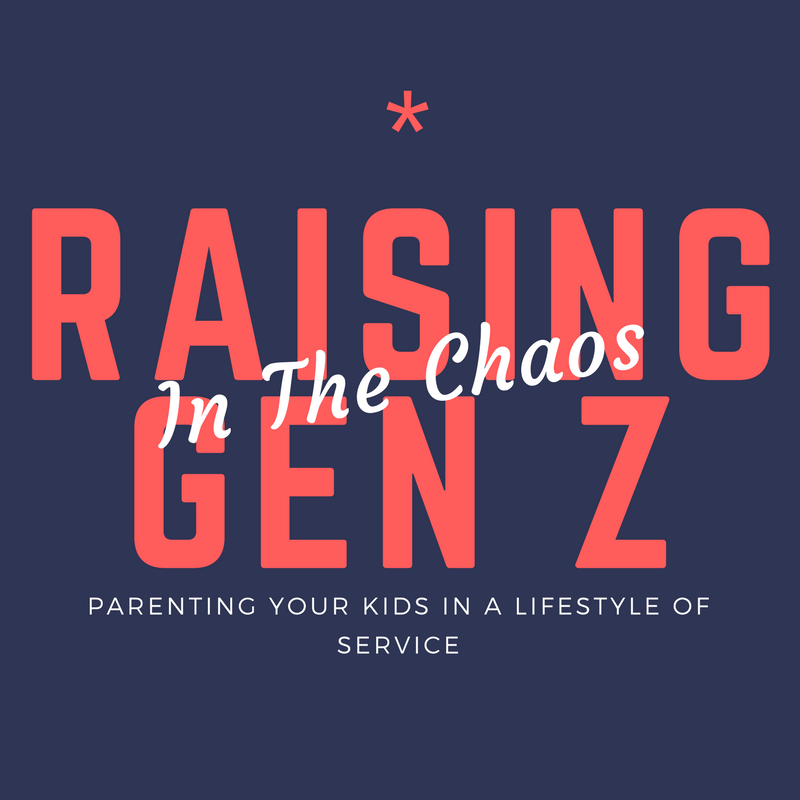
Raising Gen Z Military Kids
There is a moment in parenting where you realize that you no longer have the advantage and you now know absolutely nothing. For me, it was the moment I was schooled by my kids on the new word for “cool”, which is now “savage”. Savage? Really? What followed was daily lessons of new social rules and slang.
Trying to figure out the new world of pre-teen/teen is like my first few years as a new mom. You second guess everything and it seems like they are going to hit their head on every corner, or in this case be emotionally rejected on a daily basis. How do our military kids do this?
Generation Z, born from the mid-90s to around 2012, is already swinging the pendulum like every generation before them. According to my interview with Gary Allan Taylor from Axis, this group would “rather lose their sense of smell than their digital device.”*
Now before you freak out (I did), we adults aren’t doing so great in that department either. Unlike the Millenials before them, Gary Allan said Gen Z kids value the importance of family even more than career. This could be because they have watched their parents live out a heavy work ethic to secure the house, career, and status (maybe even our social media status). Considering it is their parents “work ethic centric” generation that is running the academic generation, is it any wonder that anxiety and depression is on the rise for these students? High school graduation requirements look more like college and grades/SAT scores are no longer enough. “Family” sounds like a good direction for the pendulum.
Even bullying has changed. Both civilian and military parents have told me their Gen Zs have started to disconnect by putting in their earbuds to avoid interaction with aggressive kids, much like adults do on the subway. I think I would put my earbuds in, too.
When it comes to military kid Gen Zs most adults I’ve spoken with agree that much of their character has been shaped by overcoming difficulty and rejection, resulting in more mature and confident kids. Many are often more comfortable around adults than kids their age.
But that doesn’t mean they don’t need connection with their peers. All kids gravitate towards peers developmentally, which makes our military teens even more desperate for it. Yet, as I’ve experienced and heard from other military parents, that’s especially challenging in a civilian school where peer groups formed over years of neighborhood cookouts and team sports. It is difficult to advance in athletic skill with frequent moves or their sport of choice isn’t easily accessible.
Gen Z’s have massive amounts of information at their fingertips. Gary Alan said in our interview that they rely more on internet research and their peer group than authority for figuring out their way ahead. However, our military kids are struggling to find that peer group and say they feel either completely ignored or bullied for their attempt to insert themselves.
The concern here is that some military Gen Z kids would almost rather not form peer relationships at all than address rejection, bullying, or the effort to assimilate when they will eventually leave anyways.
If you are like me and need encouragement (in most cases every week), here is what I have heard from reaching out to parents and experts in my current “Raising Gen Z’s” series on the LIfegiver Podcast.
- Family: The fact that Gen Z kids are valuing family more than ever makes it easier to plan intentional family time to talk about being a Gen Z Military kid. As much as they are connected to their devices, they will likely not complain after you have agreed to set all devices down for a game night. (Expect full tantrums beforehand, though).
- It really will be ok: The other day, I spoke with a military brat who is entering her senior year of college. She was brilliant. Brilliant in her social skills and maturity. She told me how prepared she was for the academic load of school, but more so for the rhythm she developed over the years to assimilate while civilian students around her fell apart. Even better, she described detaching from an unhealthy peer group because she realized her maturity made her a better leader than a follower- WOW!
- Speaking of leadership– One civilian parenting expert I interviewed, pointed out that our kids’ intensity while assimilating into the school system has a lot more to do with their leadership potential. This really encouraged me to redirect my kids’ emotional energy towards leading rather than following as a means of fitting in. This next school year, we hope to have the boys be military kid ambassadors for incoming students.
- Wise Connections– Perhaps the answer for our kids isn’t assimilating the way we would “back in the day”. In a culture where bullying or meanness is ramping up, why not encourage our kids towards smaller circles? A few close friends is not only realistic, but models what adults do.
I’ve looked forward to this season with my kids for a long time. I enjoy the dialogue, the jokes around the table, and watching them evolve into awesome bigger people. Parenting the next generation has been a lot harder than I thought, especially with the challenges of the military lifestyle. I know every parent in the history of the world has said that, but I now see the importance of educating myself. Even if that means my kids will be the ones to school me- memes and all.




